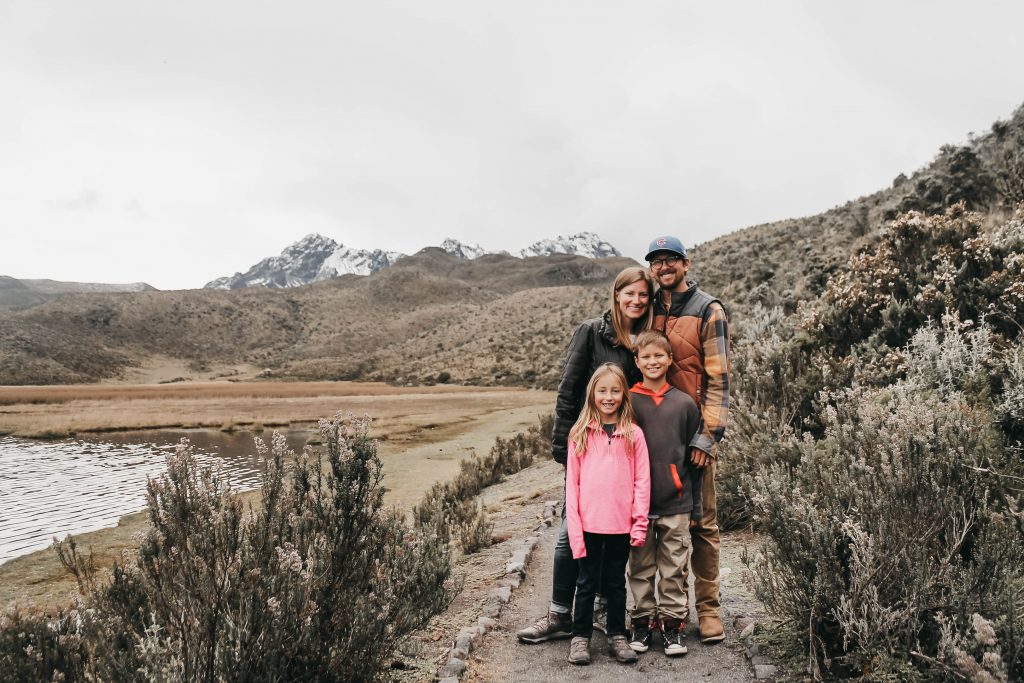words by chris
Everyone woke up with smiles and chatter. The main topic of discussion: how loud the waves were the night before. This past weekend I had the opportunity to join pastors and their families at a retreat on the coast in Crucita, Manabí. The pastoral council here offered the retreat for free, as long as families could get themselves to the hotel and conference center. For some families it was their first time to the ocean. Over 130 people were able to attend. Seafood, conversation, games, a speaker, and worship all aimed at addressing some questions within the Covenant church here.
Can pastors and their families truly rest? Can they take the time to develop and connect as a family or as an individual? Can they minister out of a place of healing and rest? Can they renew their baptismal identity not as simply “doers” of church but first and foremost as humans, children of God, friends of Christ? The themes and schedule of the week focused on these questions, providing space to practice rest, renewal, and reconnection.
Well, much was discussed, debated, and talked about. The speaker for the weekend was Roberto Reed. He and his wife Nancy were both born in Ecuador, but served much of their adult life as missionaries in Spain. They now serve in Las Cruces, New Mexico. Rob brought with him a guide to healing and renewal called Freedom in Christ. Our main focus in these sessions was to capture Sabbath rest, to reimagine our identities again as saints and children of God. The curriculum (I would call it “litugy”) was presented not just as a tool to use in our churches, but to practice together then and there. The liturgy of healing, prayer and forgiveness guides participants through reflections of pain, anxiety, fear, and sins committed and experienced against. It offers prayers of renunciations of the above and the evil one and declarations of freedom in Christ. As Rob said, this is nothing new. Christians have been renewing their baptismal vows and reflecting internally for centuries, the problem is we have focused on other things, prioritized not our identity but our activity.
Often in the busyness of ministry leaders don’t take time to acknowledge their sin, their fears, their hurts and pain – or as Rob put it, we don’t clean house. This lack of interior work leads us to work out of our own egos, our own energy, and this leads to problems with ourselves, our friends and families, and the congregations and communities we serve.
It was refreshing to see so much vulnerability and excitement behind these sessions. It affirmed the need for continued work in investing in leaders, but also made me realize how much people are ready to find rest, to change habits, and minister out of renewal instead of exhaustion and brokenness. There is a saying being mentioned at meetings and in conversations we are having here: healthy pastors, healthy families, healthy churches, healthy societies. It’s an ideal, a goal, but steps are being taken here to begin that journey towards wholeness, starting with those that have been called to shepherd.
It wasn’t all formal sessions, we also indulged in the spiritual practice of having fun. I also learned a new word, ghincana – signifying an icebreaker relay. Ecuadorians are quite fond of icebreakers and I think I should create a partnership between US youth pastors with Ecuadorians to learn the many varieties and endless options. Well, a ghincana begins with first dividing into teams, then each team has a few minutes to come up with a team name and then a chorus or chant to present to the broader group. Then the relay begins. This involved seven activities that spanned almost three hours, which I won’t go into detail about. I will mention the crowd favorite in which two pastors from each team would sit in chairs and be asked some of the most obscure bible questions. Questions included ones such as, “How many provinces did King Ahasuerus reign over?” or “How many ribs were there in the mouth of second beast that Daniel saw in his vision?” (Answers: 127 and 3 respectively). If answered wrong, which I don’t think any of us got a correct answer, flour would be sprinkled over our heads and a water balloon popped. We would then have to continue with the next five activities with dough plastered into our hair. My seminary education did not prepare me for such complex questions.
Through all this laughter, smiles, and plain old ridiculousness. Though these families walk alongside their communities experiencing marginalization and the everyday brokenness of our world, joy is important. At times Christians, especially pastors, have been viewed as dour spoil-sports. I heard a pastor jokingly state once that, “We are the ones who are worried that somewhere, someone might be having fun.” We are to enjoy the Kingdom, enjoy our extended family of faith, creation, and the simple beauty of all of humanity. Some Latino scholars have pointed out the “fiesta” atmosphere in worship. It is a time to remember our laughter, remember our joy, and remember our identity as children of God, friends of Christ, human beings.




Leave a Reply